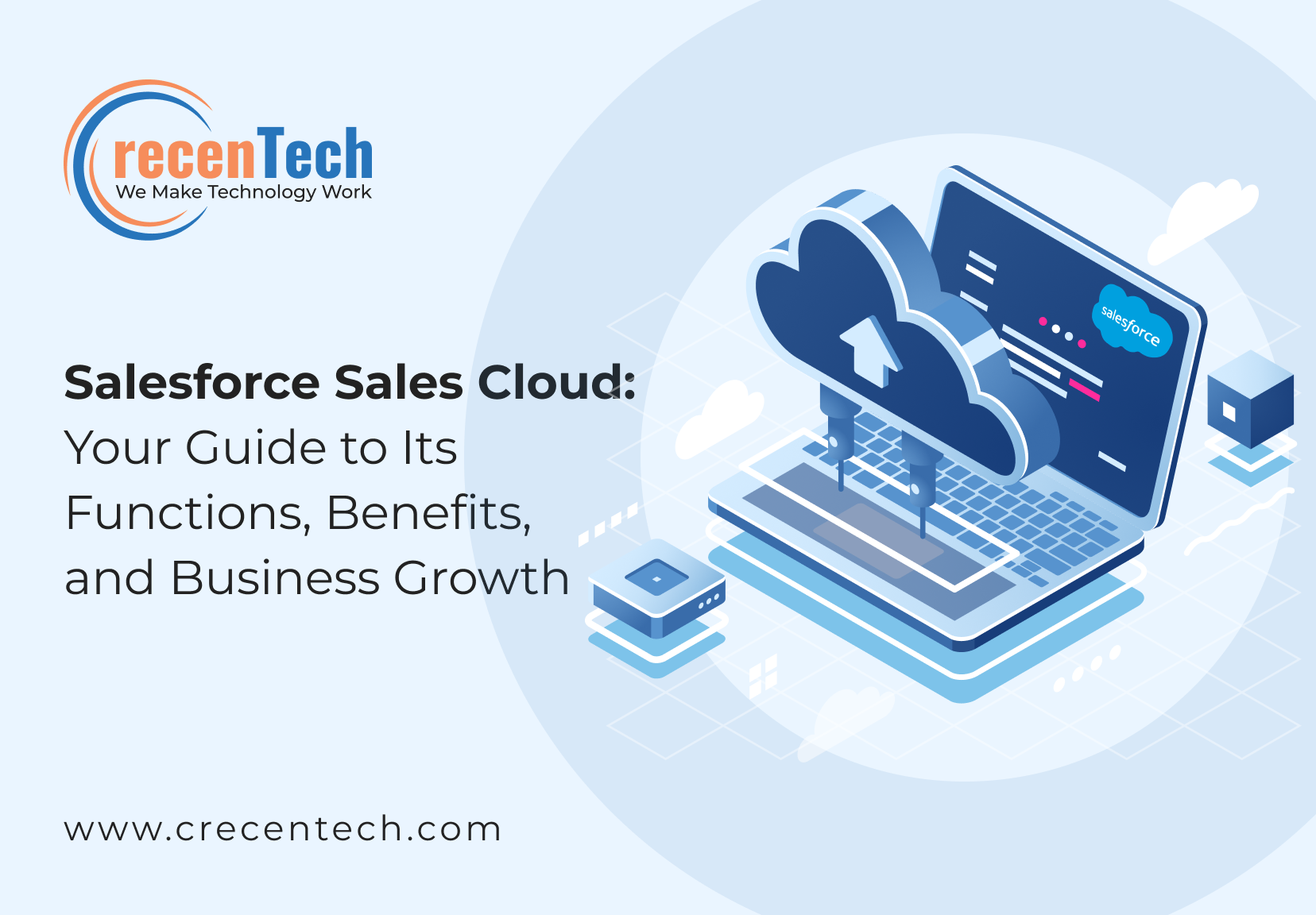Catch Up With Our Business Handlers to Discover Efficient Solutions.
Get Started 
Catch Up With Our Business Handlers to Discover Efficient Solutions.
Get Started 

05-Nov-2024
Having the right tools means the difference between success and failure in today's cutthroat business environment. Indeed, a study by Finances Online indicated that for businesses that successfully deployed their CRM systems, revenue rose as high as 41% per salesperson. With many solutions at their disposal, Salesforce Sales Cloud remains one of the top CRM options.
The Sales Cloud was meant to optimize sales processes and improve customer engagement, making it valuable in any business seeking to realize its maximum potential in sales.
Salesforce Sales Cloud is a full-service, cloud-based CRM solution that has set a new paradigm in empowering sales teams and consolidating customer information in one place. This provides a business with an integrated overview of all customer touches, thus enabling better relationship management. By baking automation into routine tasks, Sales Cloud frees the sales representatives to pursue strategic activities rather than mundane responsibilities. Key functionalities include lead management, tracking customer interactions, and optimizing sales pipelines, all of which enhance service delivery and improve client retention.
Salesforce Sales Cloud is invaluable for various roles within an organization, particularly those in sales and customer relationship management. Key roles that benefit from Sales Cloud include:
Businesses at any growth stage can leverage Salesforce Sales Cloud to enhance their operational efficiency. Here are some significant benefits:
Several global enterprises have successfully integrated Salesforce Sales Cloud into their operations to drive growth:
Sales Cloud offers a suite of features designed to support sales teams and foster business growth:
To maximize the benefits of Salesforce Sales Cloud, consider these best practices for effective implementation:
Salesforce Sales Cloud easily integrates with a variety of tools, including marketing automation platforms, ERP systems, and e-commerce solutions. This capability increases its flexibility, therefore enabling companies to build an integral technology ecosystem that supports their unique operational processes.
Despite its many advantages, businesses may encounter challenges such as high costs, a steep learning curve, and potential customization needs. It is crucial to assess these factors prior to implementation.
Sales Cloud's versatility allows it to be tailored for diverse industries. Examples include:
Salesforce offers extensive training resources, including online courses, webinars, and user communities. These resources are invaluable for ensuring that teams can effectively utilize the platform and stay updated on new features.
CRM space keeps evolving, and the future is dictated by trends like integrations of AI and increased automation. Salesforce, too, updates its platform now and then to match such trends so that businesses stay ahead with the latest tools to grow.
Salesforce Sales Cloud operates on a subscription model, with pricing tiers determined by features and user count. Businesses can evaluate ROI by monitoring improvements in sales performance and customer satisfaction metrics after implementation.
Data security is paramount, and Salesforce Sales Cloud includes robust measures such as encryption, user authentication, and adherence to industry regulations. These security features are crucial for protecting sensitive customer information and building trust.
In the end, Salesforce Sales Cloud will serve as an essential solution for maximization of sales processes and for engaging with customers effectively. Helping streamlines operations and accelerating revenue growth, integration with Salesforce Sales Cloud brings a noticeable improvement in overall efficiency and success. With this robust CRM system, it would be feasible for businesses to make a practical difference in sales towards achieving their goals in the competitive market.